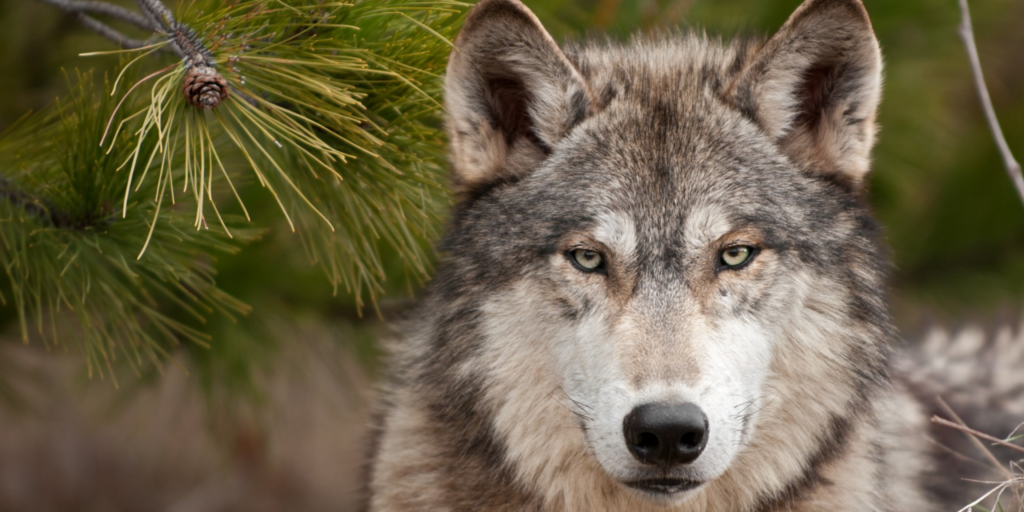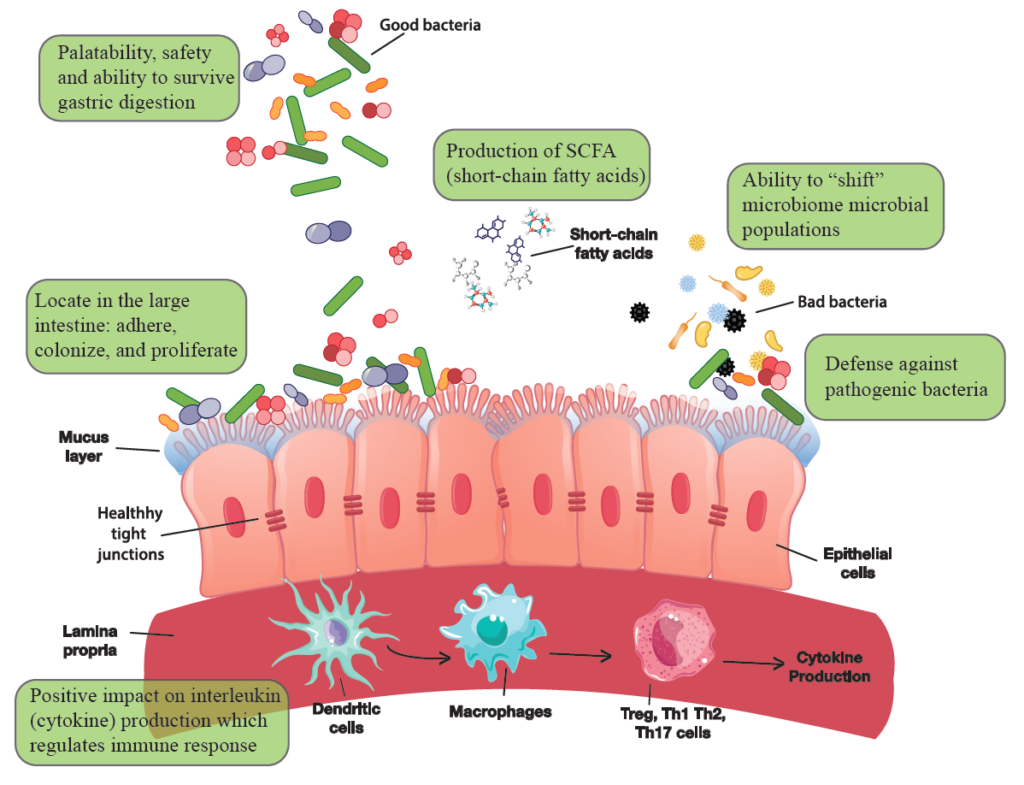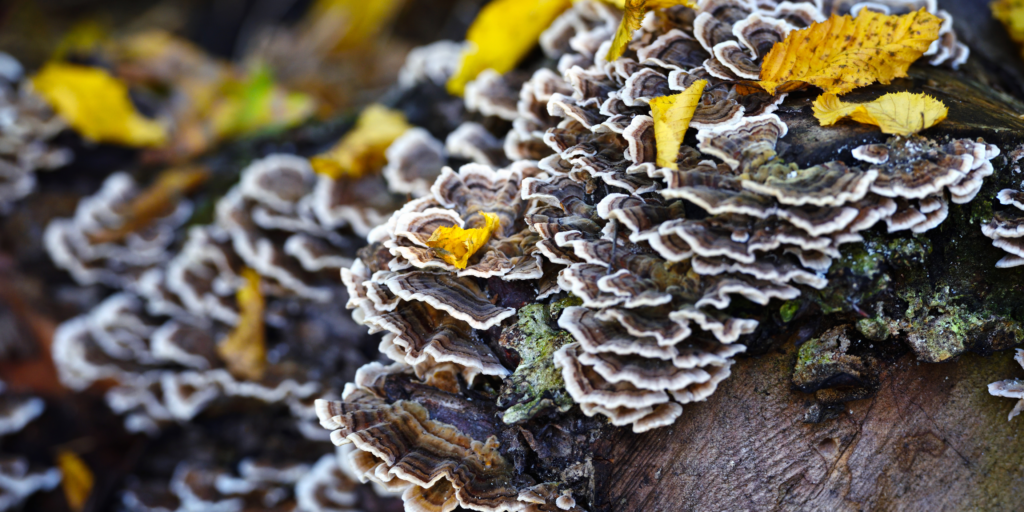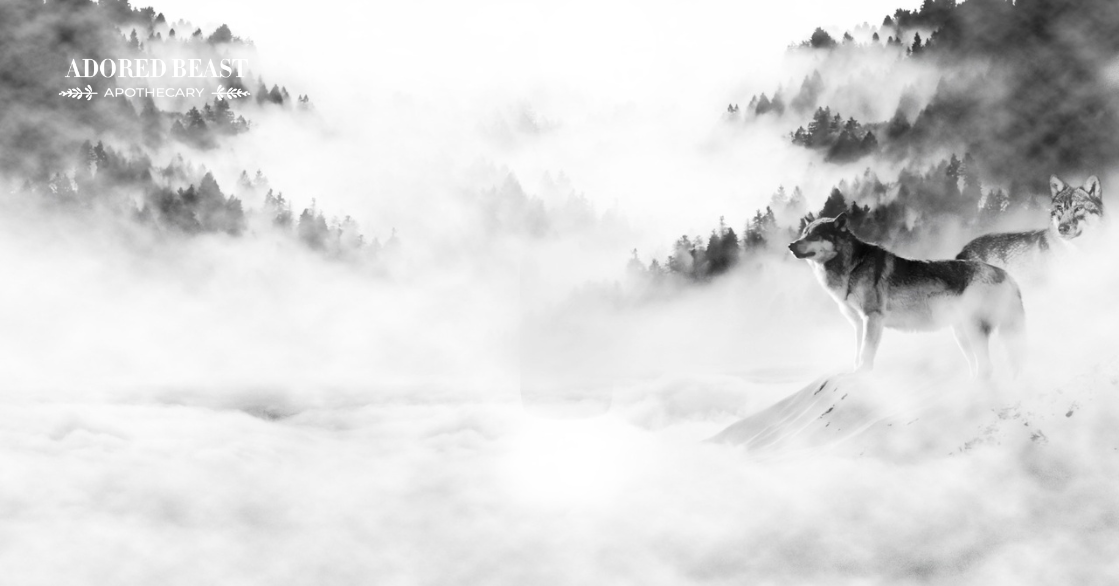What if I told you that you could diversify your dog’s microbiome with unique probiotic strains that unlock an ancestral genetic fingerprint? Strains that came from a historic, unadulterated, healthy gut ecosystem? Ones that embrace resilience, longevity, and vitality, both metabolically and physiologically? Strains that come from ~ THE WOLF!
Why is it that our dogs are dying younger and younger with cancer and autoimmune diseases, but the average wolf ranging from 70 to 145 pounds is living anywhere from 10-20 years old? Depending on what statistics you read, this is either close to or more than twice the life expectancy of a dog that size. And the females are even known to give birth at the age of 10!
When you consider what they have to go through – living in the wild, having to hunt for their food, harsh climates, injuries with no veterinary intervention – it has for me as an animal health practitioner always begged the question, what are we doing wrong?
For over two decades I have dedicated my life to working in my veterinary hospitals. I have seen an overwhelming rate of patients with chronic disease, and in the last 5 years I have been on this journey to try and at least scratch the surface to this question.
A large part of my practice in those 20 years was working with my patients’ gut health and focussing on species oriented food and lifestyle. Therefore, it was a natural course to start this research looking at the gut health of their ancestors and the foods they eat and the life they live.
Enter ancestral pre and probiotics for dogs: looking back to move forward.
The Wolf and Turkey Tail and My Hypothesis of Why it is so Important
I grew up in nature, with a mother who embraced natural medicine… that was my childhood.
When I started my formal education, I moved much more towards conventional medicine.
Then, I got back to my roots and shifted gears again 30 years ago. Now I’m shifting even more, stepping away from the industrial manufacturing of the natural wellness sector. Because of the compartmentalization and fractionization in the natural healthcare industry right now, I feel that we’re moving away from nature, and moving more towards conventional medicine with the word natural in front of it.
We’re moving away from what true, natural, traditional, holistic medicine is about. We’re taking natural ingredients and we are using them to treat things that our society has defined as disease, instead of going into nature, where there is no separation. Nature works as a diverse, all encompassing ecosystem that synergistically keeps the natural homeostasis.
We’re so focused on research and science and proving what natural medicine does, because we’ve been forced to do that by Big Pharma, that we have lost sight of what natural medicine really is. We’ve ignored our #1 teacher (Mother Earth)… we continually take from nature, and make it our own. And that has detrimental impacts across the board.
Don’t get me wrong; there are many, many elements of science, and research, and nutraceuticals that we can’t do without!! But I believe we need to be more integrative within our own industry.
Even with the surge in natural medicine and holistic health we are still seeing cancer and autoimmune disease rising at alarming rates. My instincts have told me that we need to stop putting nature in a box. Instead we need to start promoting a move back into Mother Nature’s classroom to learn what she is trying to teach us.
My hypothesis is that our animals are lacking the historical wisdom and DNA that is inherently in the gut of their ancestors. So I began working with scientists and developing ingredients that were more ancestral in nature, from probiotic strains like the Wolf to prebiotics that are not synthesized from chemical treatments and highly processed.
For example, rather than using maltodextrin, a heavily processed carbohydrate typically made from rice, corn, wheat, or potato starch, I have chosen to use ingredients or whole foods that are species-specific and have natural prebiotic properties.
My past work, and upcoming work, is to find more ancient, medicinally beneficial prebiotics, ones that are more like functional foods, rather than finding a prebiotic for its sugar content. I could not ignore the value of innate medicinal plant intelligence that comes from something that’s grown in the wild. I wanted to bring that wisdom and energy together.
So Back to the Wolf, Why a Wolf Strain?

It’s simple. Our canine companions evolved from wolves thousands of years ago. And even though this evolution happened so long ago, the domesticated dogs that reside with us in our homes are not so different from the wolves that still roam wild today. We’re leveraging the power and wisdom still found in these ancestral strains…
The Wolf is a blend of 3 lupine (wolf) species-specific probiotics from our ancestral line. Just like our Fido’s Flora features canine strains or Felix’s Flora with feline strains – The Wolf is a probiotic derived from the feces of wild wolves. We isolated these unique strains in the lab. (They went through the same vigorous research as Fido’s and Felix’s).
This unique blend has undergone extensive in vitro and in vivo assessments showing that they are able to survive in the presence of low pH and bile salts, adhere and colonize in the gut, and provide a positive impact on overall animal health.
What Makes The Wolf Different?
First of all, it’s genetically unique. YES, there are genetics in probiotics. The bacterial strain of this probiotic’s genetic fingerprint is derived from a wolf, which makes it uniquely different from anything on the market.
The gut of a wolf has not been domesticated, urbanized, or subjected to the kinds of destructive factors that a dog’s gut has been subjected to, therefore they have maintained historical bacterial diversity that no longer exists in our canine companions. By collecting the strains from a wild wolf, we are taking advantage of the diverse bacterial fingerprint that is inherent to the wolf.
Additionally, even if your dog’s diet is 100% raw, it is still far removed from a natural prey diet. A wolf’s diet is very different when compared to a domestic dog’s diet, as they are getting the entire prey from nose to tail, the prebiotic that their prey is consuming and all the wild fruits and fauna that they graze on seasonally. This diversified diet sets the stage for a rich gut ecosystem that is vasty different from our domesticated dogs.
Then we have to think about how the wolf lives. The wolf’s evolution supports survival of the fittest. Wolves have proven to be exceptionally adaptable. Wolves roll with the punches, metabolically, physiologically, and they adapt. It’s also a reason why, in certain environments, they’re reintroduced because they’re such an integral part of the ecosystem.
Why wouldn’t we want our dogs exposed to these genetics?
Our Research
Our research has shown that these species-specific probiotics remain viable in the specific acidity for the canine, in vitro (in lab) and in live feeding trials.
Our research also shows phenomenal health benefits that support many of the evolutionary diseases that we are facing in our companion animals today, including:
- helps reduce inflammation
- supporting intestinal microbiome health
- modulating/balancing the immune system
- strengthening the intestinal barrier of the gut
- increasing the production of short chain fatty acids
- defending against pathogenic bacteria

Is This Like A Fecal Transplant?
Unlike fecal transplants, we remove the concern of the immune system rejecting a foreign bacteria. Yet, you still have the energy and wisdom of the genetic fingerprint.
*This is not to say that fecal transplants are not beneficial, they are just different.
The Power of Prebiotics
Remember, you can’t just add a diverse mix of probiotics to your animal’s health routine, and hope for the best. You need to support those probiotics, otherwise they’ll die.
That’s where prebiotics come in. They’re the food and fertilizer that feed the probiotics, allowing them to flourish, thrive, and continue to repopulate and colonize the gut. And not just any prebiotics, but diverse species-appropriate prebiotics.
The concept of prebiotics just being complex carbohydrates to grow probiotics never felt right to me. Knowing that wild animals (or our animals’ ancestors) would not be eating probiotics with maltodextrin, I dug into what would a natural prebiotic be that also contains the benefits that help reduce chronic disease.
Being in the forest, with my medicinal mushroom company, it made the most sense to start looking at what grows in nature that provides both of these benefits.
And tada! There it was, right in front of me: turkey tail mushrooms. Wolves eat them occasionally, but their prey eat them all the time! Deer, squirrels, rabbits, small rodents, bugs… they all eat turkey tail mushrooms! So when wolves eat their prey, they’re taking in those digested mushrooms as well.
Introducing: Prebiotics made from Wildcrafted Turkey Tail Mushrooms

We rigorously tested turkey tail mushrooms to see how they performed as a prebiotic. This is how we did it:
Criteria used to classify a compound as a prebiotic:
- (i) it should be resistant to acidic pH of stomach, cannot be hydrolyzed by mammalian enzymes, and should not be absorbed in the gastrointestinal tract
- (ii) it can be fermented by intestinal microbiota
- (iii) the growth and/or activity of the intestinal bacteria can be selectively stimulated by this compound and this process improves the host’s health
The experiments we did to assess the prebiotic potential of turkey tail mushrooms were:
- (i) In Vitro GI Digestion
- (ii) In Vitro Fermentation
- (iii) Prebiotic Activity Score
Assessment Results for Our Proprietary Turkey Tail Prebiotic:
- (i) In Vitro GI Digestion – Turkey tail satisfied the criteria that the prebiotic material is resistant to acidic pH of the stomach and cannot be hydrolyzed by mammalian enzymes
- (ii) In Vitro Fermentation – The wolf strain mix was able to use our proprietary turkey tail prebiotic as a carbon source for fermentation
- (iii) Prebiotic Activity Score – Score was similar to that of the positive control which suggests this product is a good prebiotic that can support bacterial fermentation
After we determined that our turkey tail mushrooms were an ideal species-appropriate prebiotic, it just made sense to use them. On top of that, though, we know that there are so many other benefits of turkey tail mushrooms, in addition to their prebiotic content from autoimmune disease to cancer.… but we do not use just any turkey tail mushrooms.
My belief is that mushrooms grown in a lab just don’t have the ancient wisdom… the education that comes from the bacteria of a forest bed, from nature, just isn’t there.
Postbiotics
Maybe you’ve never heard about postbiotics… but they’re really important. Companies who are spending the time to prove the postbiotic effects of their products are few and far between.
So what are they?
A postbiotic is a bioactive compound or metabolite that is created when the correct pre and probiotic come together.
For example, postbiotics can include short chain fatty acids, anti-bacterial substances, and enzymes.
*Remember, you can’t feed postbiotics. They come as a result of the marriage between the correct synergy of a pre and probiotic.
Our scientists call this the Trifecta Approach to Overall Health…
Conclusion: But Really This is Just the Beginning
Science is doing some amazing things. But it is also missing some crucial elements. Using our medicinal mushrooms as a prebiotic and ancestral strains of probiotics helps bridge that gap.
So, if we go back to the very beginning of this article this is one product is a perfect example of my intention with this entire line – rooted in science and grounded in ancient wisdom, while also learning from and supporting Mother Earth.
We need to look backwards to move forward. What made our animals’ ancestors happy and healthy all those years ago? By looking to the lifestyle of their ancestors, we will find the health, longevity, and happiness our beautiful animals all deserve.
We must bring that age-old wisdom forward.
~ Julie Anne Lee DCH, RCSHom












